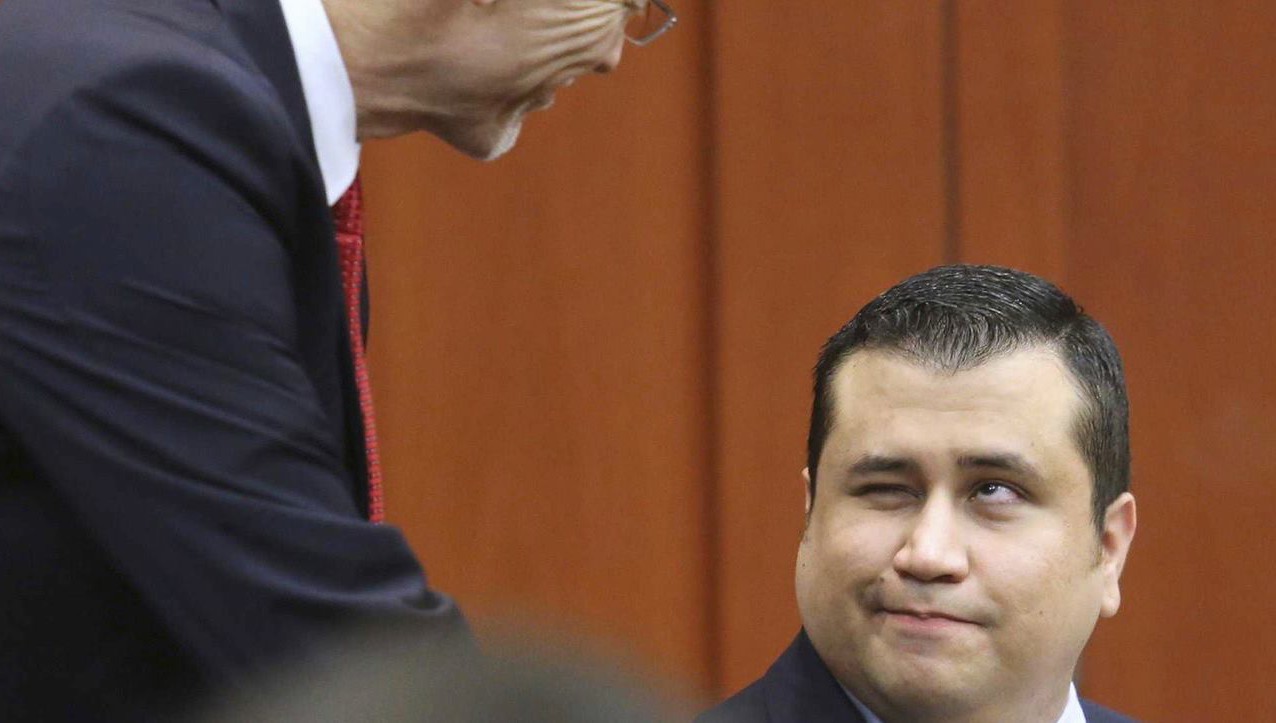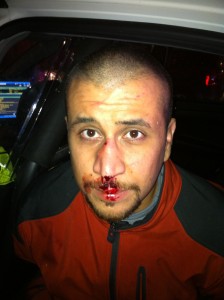If recent memory is any testament, helplessness, rather than mere evil, seems to be at the heart of modern tragedy. Grief breeds an awkward distance between our human compassion and the outcome of loss, a spatial component of heartbreak gracefully recognized by fellow BPR columnist Matt McCabe in his reflection on the Boston Bombing. As a state trooper sobbing in the parking lot of Sandy Hook Elementary expressed, “You just feel helpless.” But that’s what justice is for, to delineate the abstract from the concrete, to give us grounding and peace of mind: from here on out, we think, the actions that precipitated tragedy cannot be committed without consequence.
Before the defense rested its case in the trial that absolved George Zimmerman of all legal wrongdoing, it agreed with the prosecution upon a set of facts. The self-appointed neighborhood watchmen pursued, shot, and killed an unarmed teenager walking down the street with nothing more than a pack of skittles and a can of iced tea, after a 911 operator explicitly told him not to do so. Now, in the wake of Saturday night’s verdict, we should prepare for the George Zimmerman precedent to repeat itself: not just in Florida, but also in the other twenty-three states with Stand your Ground laws. The jury has refused to establish a deterrent to following and killing a teenager sporting a hoody over black skin.
It’s important to remember that we say “not guilty” rather than “innocent” for a reason: the former is a legal judgment, the latter a moral one. The fabric of Florida’s legal system clearly doesn’t even attempt to equate the two. George Zimmerman was entitled to stand his ground and shoot Trayvon Martin through the heart because the law enabled him to do so. The Florida legislature drafted a gun-slinging bill that played fast and loose with language, and the result was an obtuse law condoning the use of lethal violence by anyone with “reasonable” fear of great bodily harm.
It’s no longer George Zimmerman who should be haunted by a reasonable fear of great bodily harm, even death, now that his public license to shoot is calcified into law. Instead, that prize goes to every black child walking home from the convenience store with a bag of candy and a drink. Every black child wearing a hooded sweatshirt to stave off the rain. The defense wouldn’t let us forget that these children are invariably bearing arms – since the sockets of black shoulders are just holsters for the lethal weapons that are black arms – or in Trayvon’s case, his fists, which dealt Zimmerman the great bodily harm of a bloody nose.
John Rawls conceived of a thought experiment to evaluate the degree to which a society is just. Behind the veil of ignorance, we strip ourselves of demographic considerations like race, gender, age, class and orientation. Instead, we ask ourselves if we would be comfortable adopting those alternate identities before entering the world in which we now live. Rawls suggested that until a rational person would choose to be black or white, male or female, gay or straight, in equal proportion – in other words, until that choice would cease to exist as a meaningful one – we still have work to do.
So let’s remember that this verdict is tragic not for its dubious legal grounds, but for the fact that such grounds are precisely legal. Riots and violence cannot compel change. We would be better served channeling our churning stomachs into lobbying states to repeal Stand Your Ground laws. There should be no legal justification for slaying an unarmed and unassuming teenager. In nearly half the country, there is. As W.E.B. DuBois said, “a system cannot fail those it was never built to protect.” Amidst such tragedy, we should heed his words and start rebuilding. Because the resolution of this tragedy, following the Greek tradition, is catharsis: the realization that so long as these laws are in place, the system isn’t failing us. We’re failing the system.

